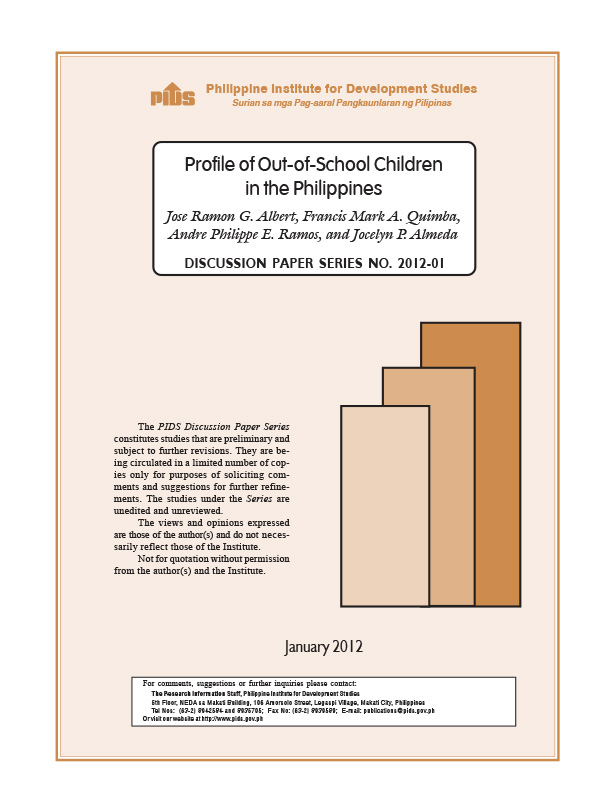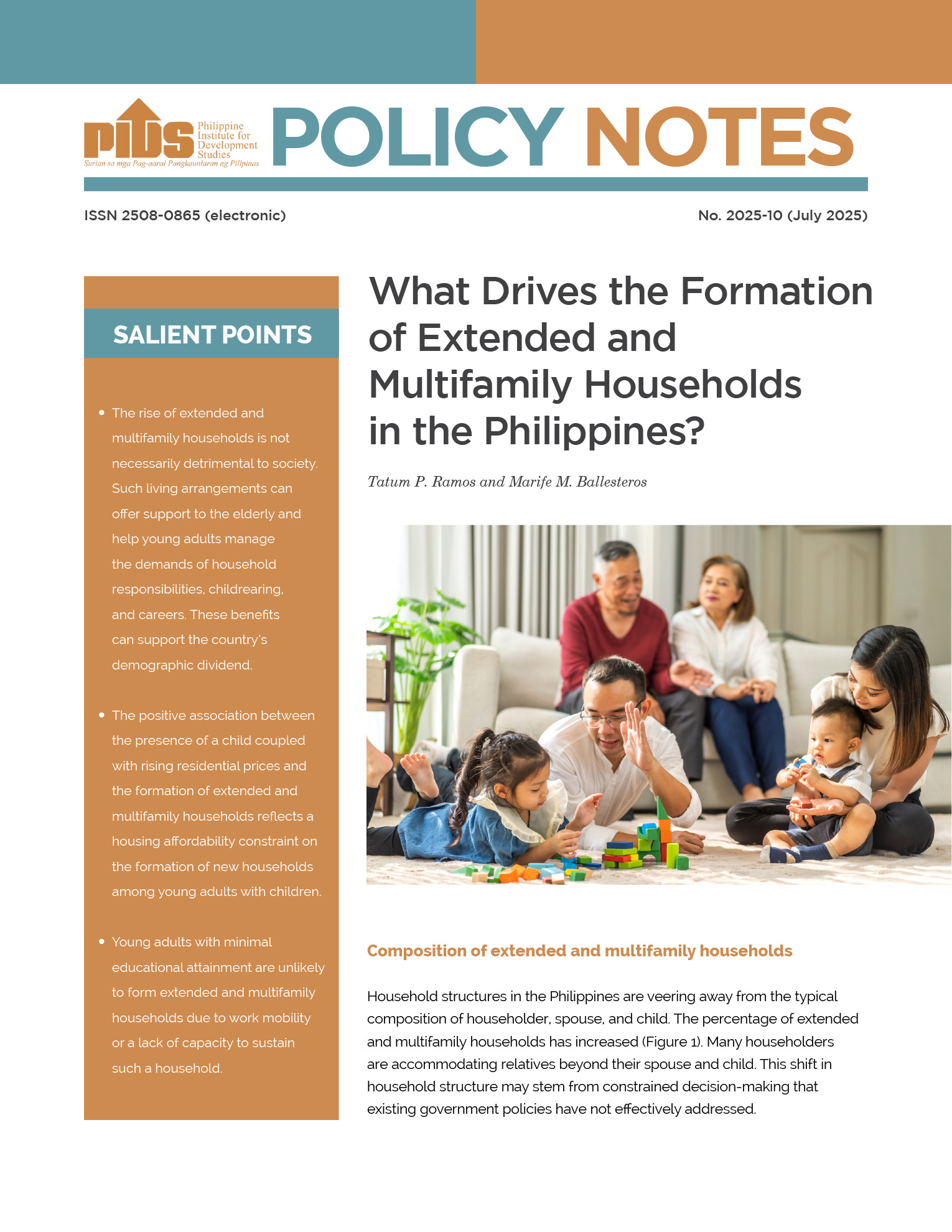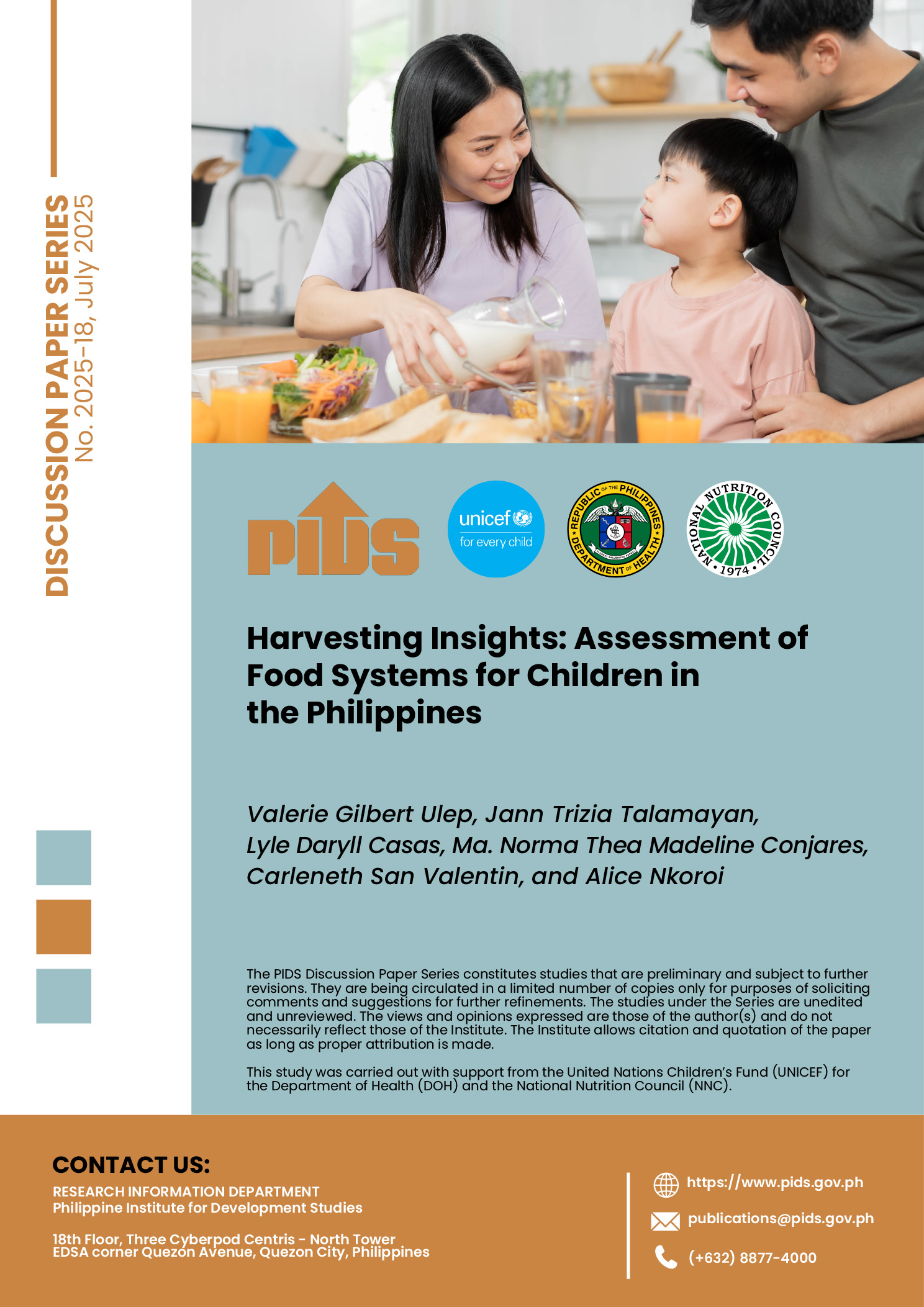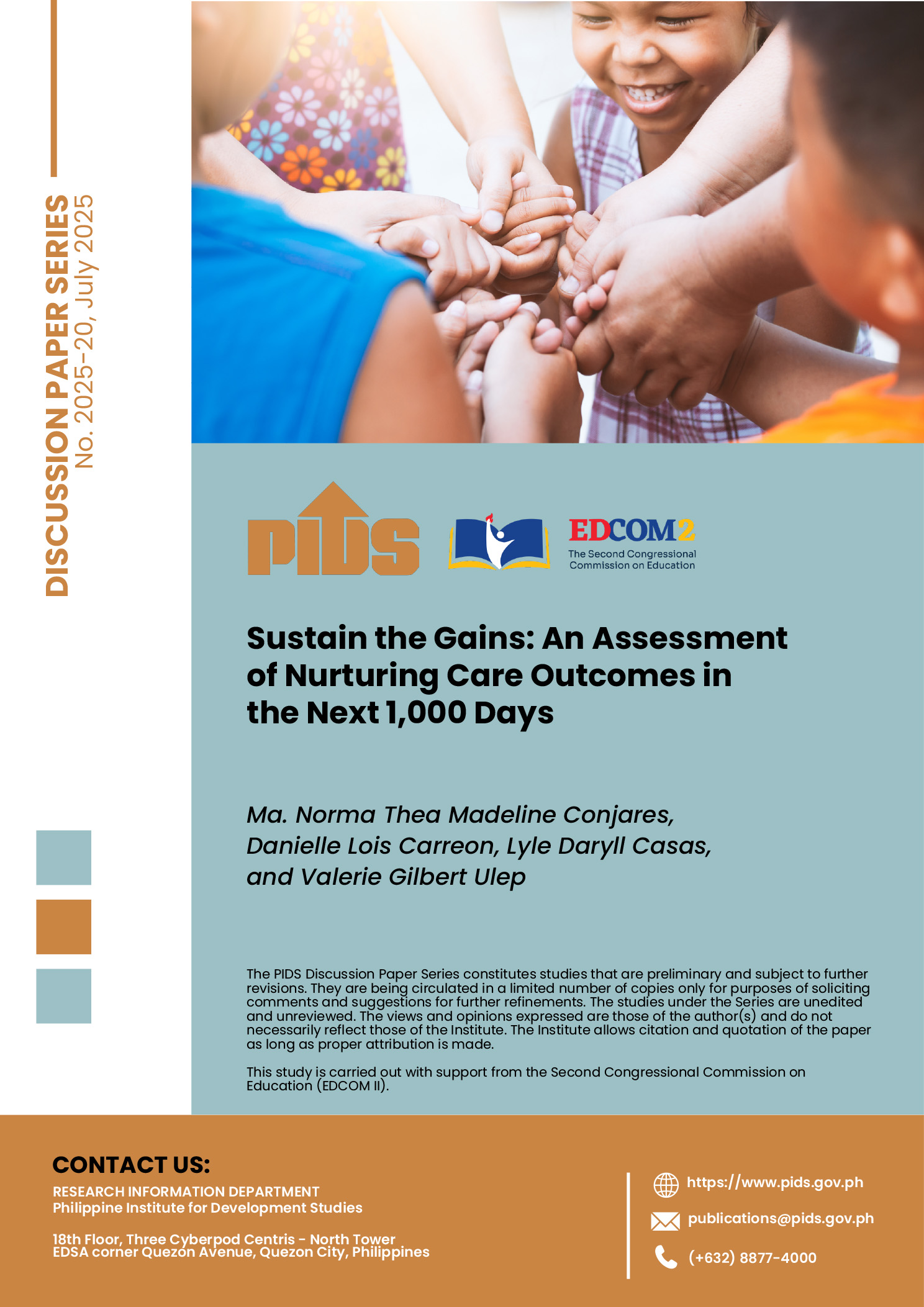The Philippines committed to Millennium Development Goals and Education for All (EFA) targets that include universal primary education. However, various data sources, including the Department of Education`s Basic Education Information System and household surveys conducted by the National Statistics Office, suggest that in 2008, a considerable magnitude of children were not in school. A description of these children is provided here as well as that of children who are at risk of dropping out of primary and secondary levels of education. Reasons for children not being in school are discussed, together with the results of an econometric model that identifies correlates of nonattendance in school.
Citations
This publication has been cited 4 times
- Albert, Jose Ramon G. and Clarissa C. David. 2012. Primary education: Barriers to entry and bottlenecks to completion. Discussion Papers DP 2012-07. Philippine Institute for Development Studies.
- Francisco, Kris. 2017. The impacts of roll-on/roll-off transport system in the Philippines. Discussion Papers DP 2017-22. Philippine Institute for Development Studies.
- Francisco, Kris A. and Makoto Tanaka. 2019. Does public infrastructure affect human capital? The effect of improved transport connectivity on children's education in the Philippines. Economics of Education Review, 3(C). Elsevier.
- UNESCO Publishing. 2015. The economic cost of out-of-school children in Southeast Asia. Working Papers id:7651. eSocialSciences.













